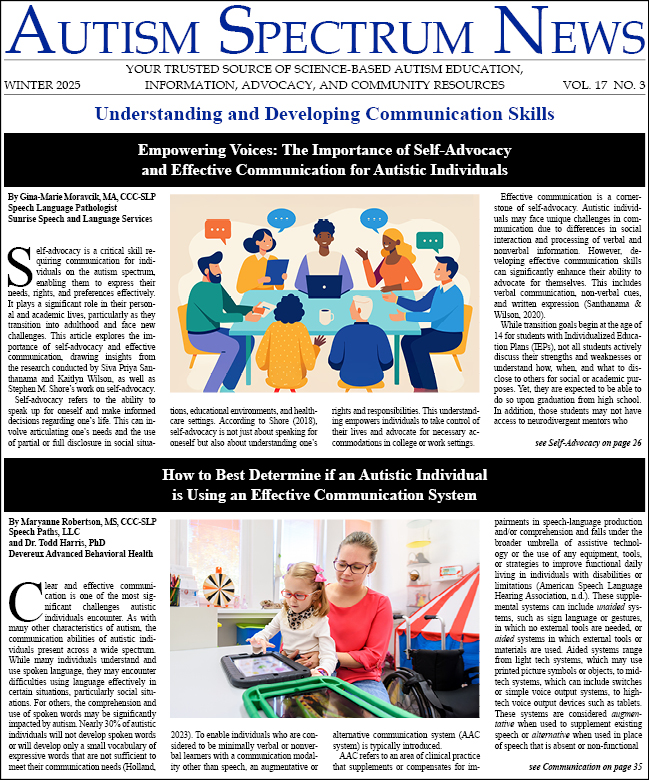-
Supporting Older Adults with Autism
Autism is a lifelong diagnosis, and as adults with autism age, many of the medical, physical, and mental changes they face are similar to those of typically aging adults. As adults with autism get older, it is extremely important for family members and/or professionals working with these...
-
Autism After 65 – Making the Most of the Golden Years
For the most part, this article is not based on research. I am using personal life experiences and the reports of individuals with whom I have corresponded and/or personally known for many years through research for my previous book, The Partner’s Guide to Asperger Syndrome. Many of the subjects...
-
An Autism Spectrum News Interview with Temple Grandin
Temple Grandin has been at the forefront of autism awareness for the past 50 years. She has seen autism unfold from an unknown to a much better recognized diagnosis, yet she is keenly aware that gaps in understanding and unfulfilled priorities remain. This issue of Autism Spectrum News is...
-
Let’s Get Physical: Exercise and Health Issues in Adults with Autism
The research is clear: autistic adults are spending way too much time on the couch. While children with autism may flourish by taking advantage of numerous opportunities for group exercise and team sports, these activities become increasingly scarce after they “age out” of school at age 21....
-
Adults on the Autism Spectrum: An Unidentified and Forgotten Population
Among all those on the autism spectrum, adults get the least media attention and receive the fewest services, supports, and resources of any kind. This is ironic when one considers that adulthood constitutes most of the human lifespan, so that the vast majority of individuals with autism clearly...
-
Adults with Autism May a Have High Burden of Health Problems
Adults with autism may suffer from various health problems, ranging from psychiatric conditions to motor symptoms that resemble Parkinson’s disease, according to two studies presented Thursday at the 2014 International Meeting for Autism Research in Atlanta. Some of the conditions may...






